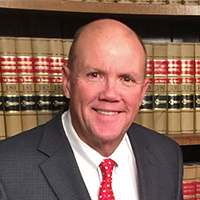 Skipperville RICO Act Lawyers, Alabama
Skipperville RICO Act Lawyers, Alabama
Sponsored Law Firm
-
 x
x

Click For More Info:
-
The Law Offices of Richard L. Cooper, P.A.
848 Brickell Avenue Suite 800 Miami, FL 33131» view mapDWI/DUI, Drug Trafficking, Felony Nationally Ranked Top 40 Under 40
With Richard L. Cooper you can expect a trusted confidant who will work diligently to fully understand your case and determine a road map to help you regain control of your life.
800-756-2781
Not enough matches for Skipperville RICO Act lawyer.
Below are all Skipperville Criminal lawyers.
Sponsored Lawyers
1-1 of 1 matches
Divorce & Family Law, Criminal, Accident & Injury, Business, Estate
William Matthews, Jr. is a practicing lawyer in the state of Alabama specializing in Divorce & Family Law; Criminal; Accident & Injury; Bankruptcy & Debt; Estate. Mr. Matthews received his J.D. from the University of Alabama School of Law in 1981.
(more)



 Richard L. Cooper Miami, FL
Richard L. Cooper Miami, FL AboutMiami Attorney at Law
AboutMiami Attorney at Law ServicesCriminal Defense
ServicesCriminal Defense

